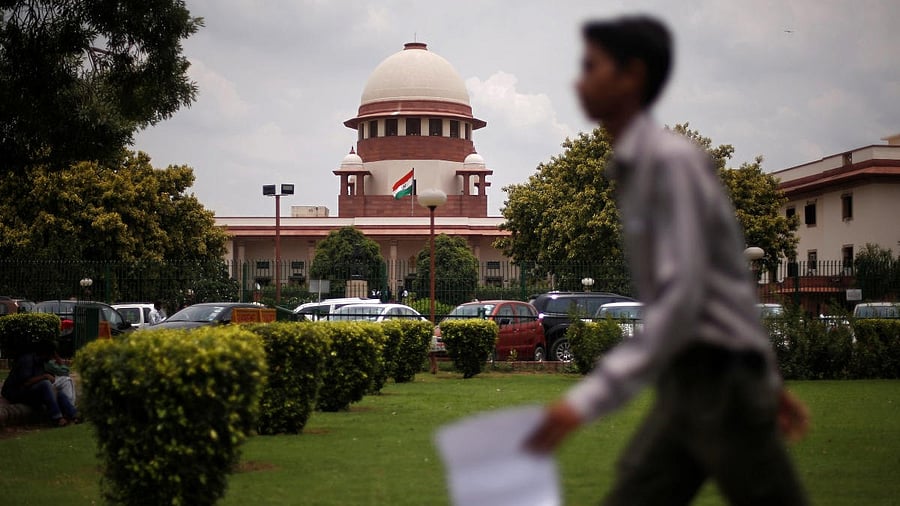
The Supreme Court of India.
Credit: PTI Photo
New Delhi: The Supreme Court has said it is not necessary that in all cases over and above compensation in terms of money for acquisition of land, rehabilitation of the property owners is a must, holding that the plea of deprivation of right to livelihood under Article 21 of the Constitution is unsustainable in these matters.
The top court underscored that any beneficial measures taken by the government should be guided only by humanitarian considerations of fairness and equity towards the landowners.
A bench of Justices J B Pardiwala and R Mahadevan said, "It is only in the rarest of the rare case that the government may consider floating any scheme for rehabilitation of the displaced persons over and above paying them compensation in terms of money."
The court decried that at times the state government with a view to appease its subjects float unnecessary schemes and ultimately land up in difficulties. It would unnecessarily give rise to number of litigations.
In its July 14, 2025 judgment on an appeal filed by Estate Officer, Haryana Urban Development Authority, the bench noted, this litigation is an eye opener for all States in this country.
"If land is required for any public purpose law permits, the government or any instrumentality of government to acquire in accordance with the provisions of the Land Acquisition Act or any other State Act enacted for the purpose of acquisition. When land is acquired for any public purpose the person whose land is taken away is entitled to appropriate compensation in accordance with the settled principles of law," Justice Pardiwala wrote in 87-page judgment.
The court emphasised, ordinarily, rehabilitation should only be meant for those persons who have been rendered destitute because of loss of residence or livelihood as a consequence of land acquisition. In other words, for people whose lives and livelihood are intrinsically connected to the land, it pointed out.
In the case, the dispute was related to whether landowners would be entitled to allotment of plots in accordance with the scheme of 1992, 2016 as modified in 2018, floated by the State of Haryana.
The respondents-landowners said that they were ready and willing to deposit the requisite amount for the purpose of allotment of plots in accordance with the policy of 1992. However, the state government contended the respondents could not have instituted a civil suit after a period of almost 14 to 20 years of passing of the final award.
Disposing of the appeal, the bench held that the respondents were not entitled to claim as a matter of legal right and that they should be allotted plots as oustees only at the price as determined in the 1992 policy. They are entitled at the most to seek the benefit of the 2016 policy for the purpose of allotment of plots as oustees, the court said.
Allowing the landowners to apply for plots within four weeks and directing the state government to dispose of their pleas within eight weeks, the bench directed the authorities to ensure that land grabbers or any other miscreants may not form a cartel and try to take undue advantage of the allotment of plots.
"At the end it should not happen that unscrupulous elements ultimately derive any benefit or advantage from allotment of land to the oustees. In this regard the State and HUDA will have to remain very vigilant," the bench ordered.
The court also said, since the allotment of plot is with a laudable object and not for any monetary gain, a condition should be imposed at the time of allotment that the allotee shall not be entitled to transfer the plot to any third party without the permission of the competent authority and in any case not within five years from the date of the allotment.
